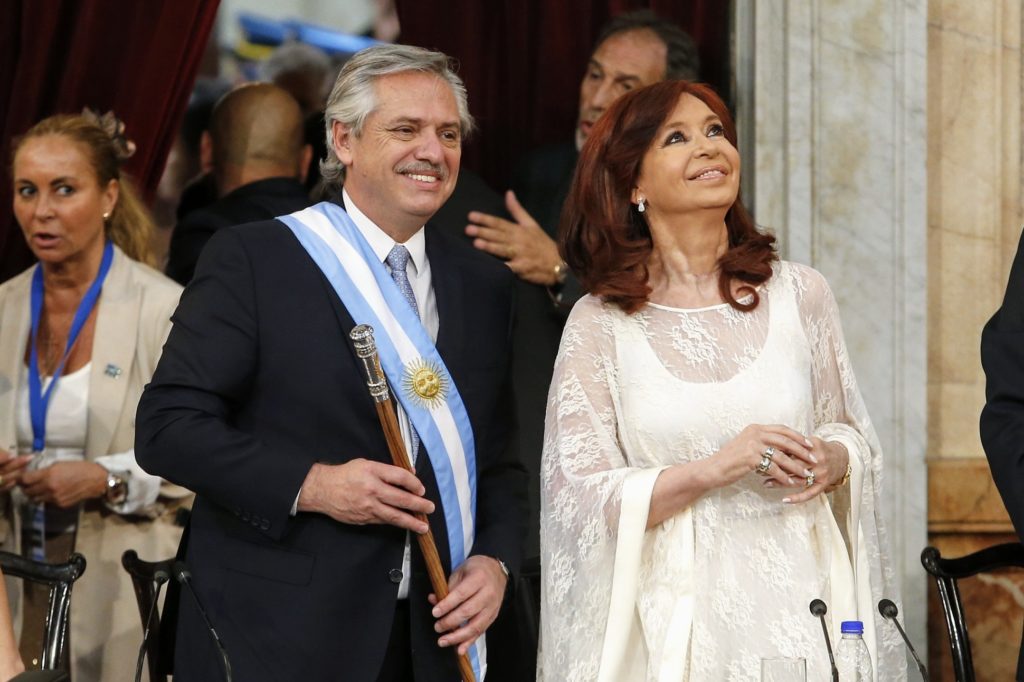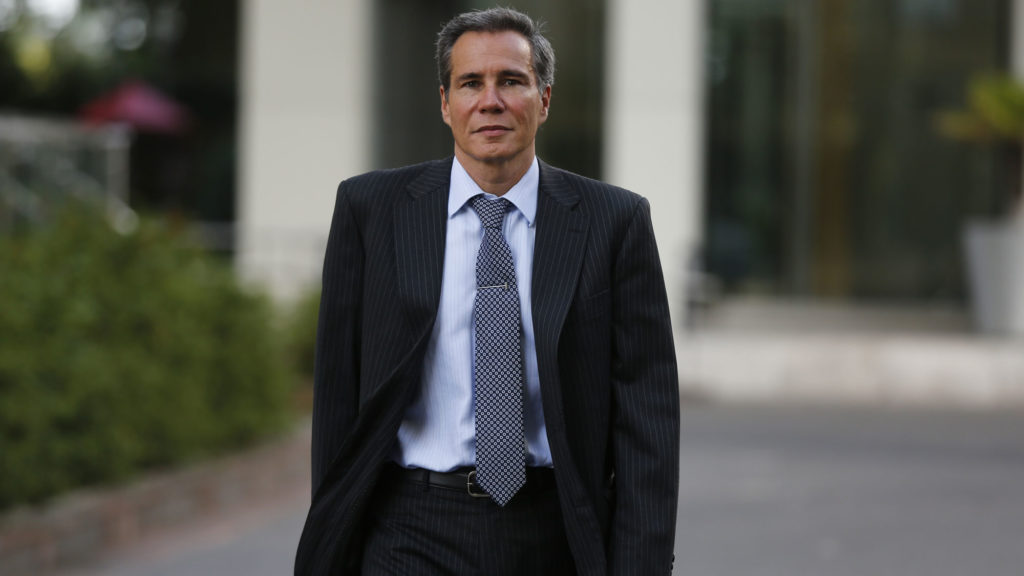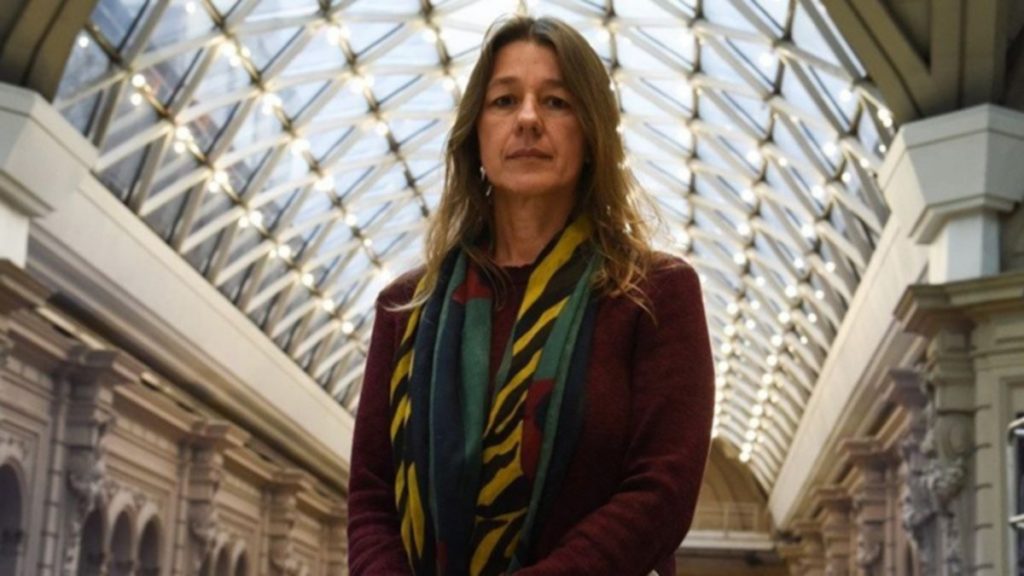Australia/Israel Review
AMIA and the new Argentinian government
Feb 4, 2020 | Ariel Hefetz

Latin America, and particularly, Argentina, has not missed out on the emerging trend of populism in the politics of various regions around the world. In the 2019 presidential and congressional elections, the populist Peronist Party managed to regain power after four years of governance by the Centre Coalition, “Juntos por el Cambio”, which was widely regarded as unsuccessful.
Now, the Argentinian Jewish community, and indeed the wider Jewish world, is grappling with the implications of this new Government for the long-stalled investigation into the murderous mass-terror attack on the Asociacion Mutual Israelita Argentina (AMIA) Jewish community building in 1994. There is ample evidence that this attack, which killed 85 people, was executed by Iran and its Lebanese terror proxy, Hezbollah, yet no one has ever been brought to justice for this atrocity after numerous investigations.
The dual head-of-state system
The rule of Peronism is not a new phenomenon in Argentina, but its return to political centre stage is slightly different this time around.
Despite its lack of success, the Centre Coalition led the first non-Peronist government since the fall of the military regime in 1983 which managed to complete its four-year term. The Peronists had either early elections or an early government transition date in all previous such governments, largely by orchestrating unrest on the streets through Peronist union leaders.
In the new Peronist Government, for the first time ever, the strongest political figure in power is not the President, Alberto Fernandez, but rather the Vice President, Cristina Fernandez de Kirchner, Argentina’s former president (2007-2015). Kirchner personally picked Fernandez to be the heir to her throne as the leader of the party (as she herself publicly announced in May 2019).
Fernandez was chosen after Kirchner realised that her controversial candidacy for re-election as President was unlikely to succeed, and instead a person presenting (at least apparently) more moderate views was required in order to secure an election victory.
It should be noted that President Fernandez is not Kirchner’s puppet.
Fernandez was the chief of staff in the President’s office for six years and angrily left government following intense disagreements over policy with Kirchner and her late husband, Nestor Kirchner (who was also president from 2003 to 2007). Moreover, while in private life, Fernandez bluntly criticised the behaviour of Kirchner and her government using sometimes colourful language.
Since taking office early in December 2019, Fernandez has broadcast messages of reconciliation and moderation, in stark contrast with the hard-line, in-your-face partisan style of Kirchner. But the situation is complex.
In order to gradually create an independent political base for himself, Fernandez presents a somewhat more centrist line, distancing himself – but only at times – from the ideologically “leftist” extremist policies advocated by the more vocal part of Kirchner’s camp. Following the same reasoning, Fernandez has been taking pragmatic steps – reforming pension funds, for example – to improve Argentina’s financial status ahead of upcoming negotiations about the country’s foreign debts.
At the same time, Fernandez is sharing the “spoils” that come with the office of president, handing jobs to Kirchner’s allies and close associates, particularly within law-related institutions that can influence the legal fate of the Vice President and her children.
Kirchner – and in some cases, her two children – is facing a long list of lawsuits which could translate into damages worth billions of dollars. Among the scandals and alleged felonies tied to Kirchner are corruption, bribery, money laundering, breach of trust and heading a crime syndicate actively abusing public money. However, she is not expected to be arrested as long as she enjoys parliamentary immunity. It is no wonder that the new Government has placed her loyalists in key positions within the Ministries of Justice and of Internal Security and in the Argentinian Central Intelligence Agency (which is focused more on political intrigue than national intelligence).
AMIA
This modus vivendi being forged between Fernandez and Kirchner has important implications for both the AMIA investigation and for the investigation into the 2015 violent death of the Special Prosecutor in the AMIA case, Alberto Nisman.
In 2004, 20 years after the terrorist attack, and under the Presidency of Nestor Kirchner, Nisman was appointed to examine the AMIA attack. In 2006, he formally accused the government of Iran of directing the AMIA bombing, and Hezbollah of carrying it out.
However, his efforts increasingly clashed with the priorities of the Cristina Fernandez de Kirchner government, especially after the government signed a memorandum of understanding with Iran in 2013 to jointly investigate the AMIA bombing.

Special Prosecutor Alberto Nisman: Shot dead in 2015
In January 2015, Nisman was shot dead only a few hours before a scheduled appearance before the Argentinian Congress. In his never to be heard testimony, Nisman was expected to substantiate an indictment he was filing against Kirchner for her alleged agreement with Iran to discontinue the AMIA investigation in exchange for a renewal of full-fledged economic and political relations between the two countries. Nisman was found dead in his apartment with a bullet wound to the head, after the security team assigned to protect him around the clock had ceased all contact with him 24 hours earlier.
The crime scene was then allegedly tampered with by the same officials who were supposed to be investigating it.
It appears that a process of disrupting any chance of exposing the truth with regards to Nisman’s assassination may have resumed under the new (old) government, and will presumably escalate as time goes by.
A negative sign is the appointment of Sabina Frederic, one of Kirchner’s closest allies, as Internal Security Minister. Even before officially taking office, Frederic – perhaps knowing the position of the incoming President – harshly criticised the decision of the previous Macri Government in July 2019 to include Hezbollah in Argentina’s list of restricted terrorist groups, depicting it as “buying a problem which is not our own but rather a NATO problem.”
This argument is particularly strange considering the fact Argentina suffered two Iran-related terror attacks with more than one hundred innocent deaths (AMIA and the 1992 bombing of the Israeli Embassy in Buenos Aires). In both cases, there is ample evidence Hezbollah was involved. Following pressure from Israel and the United States, Frederic retracted her words, claiming she was quoted out of context. Hezbollah remains on Argentina’s terror list, at least for now.
Frederic is also allegedly involved in a more direct attempt to interfere in the investigation into the real circumstances of Nisman’s demise.

Internal Security Minister Sabina Frederic: A controversial appointment
Once again, based on receiving approval from President Fernandez, she formally announced her intention to “procedurally” review the investigation conducted by experts of the criminology lab of the Border Patrol Force. That investigation had determined that Nisman was indeed murdered, contradicting a report by a Supreme Court-appointed expert which said it would be impossible to ever conclude with certainty what circumstances led to the Special Prosecutor’s death. In Argentina, the Supreme Court is notorious for its tendency to toe the current government’s line.
More recently, Buenos Aires has not responded to the elimination of Iran’s Quds Force commander Qassem Soleimani a few weeks ago. The latter was directly engaged in the exporting of the “Islamic Revolution” and responsible in recent years for the creation and coordination between Teheran and multiple Iranian-sponsored terror organisations world-wide, including Hezbollah.
This silence is likely evidence of the delicate balance struck between the two people currently in power in Argentina. However, as the country struggles to reposition itself on the international stage, internal political struggles related to the AMIA terror attack may resurface and even accelerate.
The position of the Argentinian Jewish Community
The leadership of the Argentinian Jewish community, like many Jewish communities around the world, is forced to walk a fine line in search of an equilibrium between contradictory demands.
Jewish leaders must attend to the Jewish social sphere, supply economic welfare to families of lesser means, while maintaining Jewish identity. At the same time, Argentinian Jews both want and need to belong to the wider society in their country, even as they are fending off antisemitic accusations against them, for example, of “dual loyalty” (to Israel and/or the Jewish people).
Within these pressing constraints, the Jewish community has kept completely silent about the killing of Soleimani, despite the latter’s direct affiliation with terrorist attacks similar to the ones committed in Argentina in the 1990s against AMIA and the Israeli embassy.
On the other hand, the heads of the community have launched a coordinated effort to convince the new Argentinian Government to keep Hezbollah on the country’s list of terrorist organisations (despite what Frederic had previously urged).
In addition, they have responded to some statements by public figures with an antisemitic flavour.
One example is a statement issued on Dec. 30 by Vice President Kirchner in memory of the late Foreign Minister, Hector Timerman, who was Jewish. Kirchner was the president and Timerman the foreign minister when the alleged agreement with Iran to keep silent about AMIA was being forged. In 2017, Timerman was detained and placed under house arrest for allegedly helping cover up Iran’s role in the bombing.
In her statement, Kirchner described Timerman as someone who “put above all [the fact] that he was an Argentinian citizen and his love for the homeland.”
Another more glaring example was the Twitter post by Leopoldo Moreau, a member of Congress, representing the governing party, arguing that the claim that Special Prosecutor Nisman was murdered was actually “a well-planned global marketing action, initiated by the State of Israel, the American right, and the big creditors of Argentina and their local accomplices.”
A difficult relationship between the Jewish community and the new Government, complicated by the disparate elements within it, looks very likely – with the long struggle over justice for both AMIA and Nisman at its centre.
Ariel Hefetz is a former IDF senior intelligence analyst who was born in Argentina.
RELATED ARTICLES

Enormous hope that Iran is being liberated: Colin Rubenstein on Sky News





